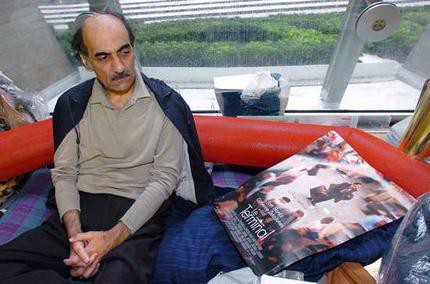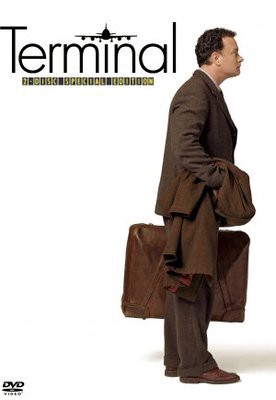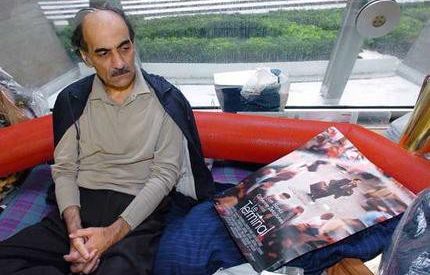
A Syrian refugee who lived at a Malaysian airport for seven months was recently granted asylum in Canada. But before the story of Hassan al Kontar hit the headlines, there was an epic story about a man stranded at an airport for almost two decades.
Suited businessmen and holidaymakers bustled through Charles De Gaulle airport?s terminal one, barely noticing the figure curled up on a red plastic bench. Picking up last minute gifts or killing time in a coffee shop, they were on their way somewhere else, perhaps heading home.
Home for Merhan Karimi Nasseri was a small corner of the international transit zone. He lived there for an unbelievable 18 years and was the inspiration for Steven Spielberg?s blockbuster The Terminal.
Unlike the movie, though, Merhan?s tale is not a saccharine sweet tale of triumph against all odds.
In the film version, Viktor Navorski (Tom Hanks) is an Eastern European forced to take up residence at a New York airport as his homeland has undergone a coup and ceases to exist. He quickly finds comrades to rely on, gets a job and falls in love with an air hostess (Catherine Zeta Jones).
Reality was a lot different for Iranian-born Merhan, who preferred the nickname Sir Alfred. He became mentally fragile over the years and was unwilling to engage with the real world. Living in an artificial environment, he never saw open sky or breathed fresh air during his almost two decades years living in the airport terminal.
He whiled away his days reading newspapers and smoking and wore ear plugs to drown out the incessant announcements on the tannoy system. He could never get a good night?s sleep on the hard plastic seats and boredom was only relieved when a television crew or curious stranger dropped by to chat to him.
He woke up at 5.30am each day, before passengers arrive, and shaved in the public bathroom.
?If I go later, it?s crowded with tourists and not very private,? he said.
For meals, he relied on the generosity of airport staff and people passing through the terminal. He ate lot of fast food, the often-relied on sustenance of frequent flyers.
But Merhan wasn?t going anywhere fast. He first took up residence at the airport in the summer of 1988, when British immigration officials turned him back from London.
He should have had his official refugee papers to present to them but due to a cruel case of bad luck, they had been stolen just a few days earlier at a Parisian train station.
French officials didn?t know what to do with him when he arrived back at Charles De Gaulle airport. He had been expelled from his homeland, Iran, in 1977 and spent the next few years bouncing around European cities until he unsuccessfully tried to enter Britain in 1988. A court case ruled that French authorities couldn?t forcibly remove him from the airport.
A victim of bad luck and bureaucratic obstinacy in the first instance, Merhan became institutionalised in the airport and found comfort in his daily routine, writing in his journal and reading English-language newspapers.
The money in his airport post office account was barely touched during his stay at the terminal though Dreamworks paid him a reported $300,000 (?245,000) for the rights to his story. It would be more than enough to start a new life elsewhere.

In 1999, Merhan was finally given refugee papers but stubbornly refused to sign them. He objected to his nationality being listed as Iranian and wanted the document to show his name as Sir Alfred, the nickname he adopted after a British immigration letter mistakenly listed his name.
French human rights lawyer Christian Bourguet had helped Merhan to get to this point and was apparently aghast that he was refusing to sign the papers that would allow him to move on with his life, after 11 years? living in exile in an airport. Signing the papers would give him a chance at a new life in France.
Psychological experts thought that Merhan?s grip on reality was compromised by the years he had spent moorless and in a strange parallel experience at the airport.
The film The Terminal was released in 2004 and proved a popular choice with cinema audiences. This brought a renewed focus to Merhan?s unusual story. Two years? later, he was hospitalised for an unknown ailment and this marked the end of his stay at Charles de Gaulle International Airport. After his release from hospital, he was put in a hotel near the airport.
He never managed to make his way to his final destination, London, but he was granted freedom in France. The last that was heard of Merhan, he was living in a shelter in the Parisian suburbs.


